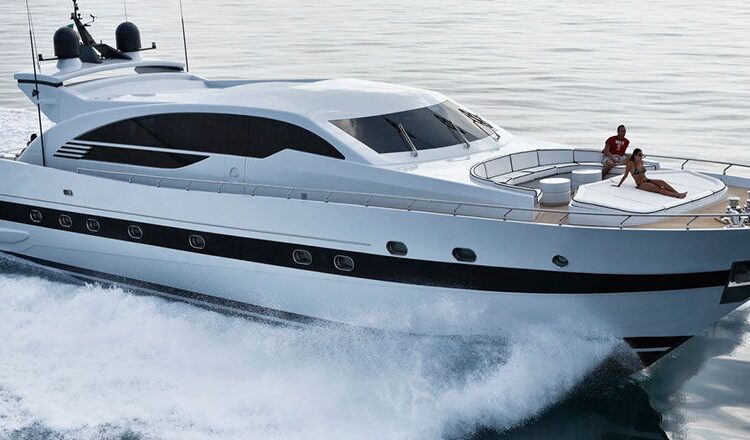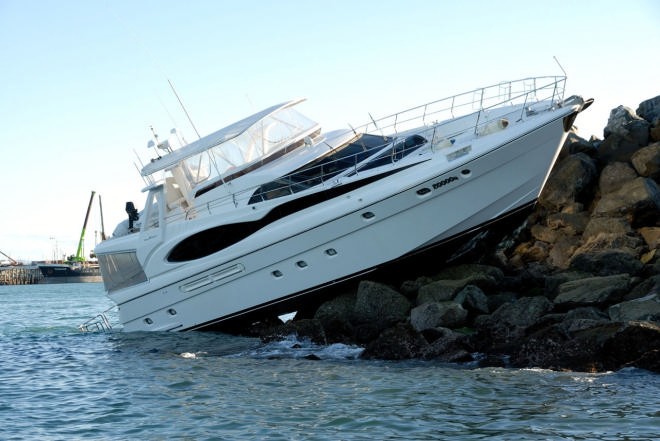
Navigating the Seas of Yacht Insurance: Common Mistakes to Avoid
Yacht insurance is an essential aspect of being a responsible yacht owner. It provides crucial protection against financial losses in case of an accident, theft, or damage to the vessel. However, purchasing yacht insurance can be complicated, and many yacht owners often make mistakes that can lead to inadequate coverage or higher premiums.
In this blog, we will discuss the common mistakes that yacht owners make when purchasing insurance and provide tips to help navigate the seas of yacht insurance. Whether you’re a first-time yacht owner or have been sailing for years, it’s crucial to understand the pitfalls and avoid them to ensure that you have the right coverage at a reasonable cost.
FOUNDED IN 2018, INLUXUSS INSURANCE GROUP IS A BROKERAGE POWERHOUSE THAT PRIDES ITSELF.
Choosing the Wrong Type of Insurance
Choosing the wrong type of yacht insurance can be a costly mistake. There are different types of coverage available, including liability insurance, hull insurance, personal effects coverage, and emergency towing and assistance coverage, among others.
Each type of insurance is designed to cover different risks, and choosing the wrong one can lead to inadequate coverage or unnecessary expenses. For example, choosing liability insurance only when you need hull insurance as well can leave you unprotected against damage to your vessel, while purchasing emergency towing and assistance coverage when you do not need it can result in unnecessary expenses.
It’s important to understand the types of insurance available and choose the right one for your needs.
Underestimating the Value of the Yacht
Yacht owners need to ensure that their vessel is adequately insured for its full value. Underestimating the value of the yacht can lead to insufficient coverage in the event of a loss. Here are some common mistakes to avoid:
A. Not getting a professional appraisal
Many yacht owners make the mistake of relying on their own estimates or online tools to determine the value of their vessel. However, a professional appraisal is essential for accurately assessing the value of the yacht.
B. Not accounting for upgrades and customizations
Yacht owners may also forget to factor in upgrades and customizations made to the vessel, which can significantly increase its value. It’s important to ensure that the policy includes coverage for any improvements made to the yacht.
C. Failing to update the policy regularly
Lastly, yacht owners must remember to update their insurance policy regularly to reflect any changes in the value of the yacht. This could include upgrades or customizations, or changes in market value.
By avoiding these mistakes, yacht owners can ensure that their vessel is fully protected in the event of a loss.

Failing to Disclose All Information
Hiding relevant information from the insurer can have serious consequences. Yacht owners must provide complete and accurate information when purchasing yacht insurance. This includes information about:
- The yacht’s condition and any pre-existing damage
- The intended use of the yacht
- The location where the yacht will be docked or stored
- The yacht owner’s boating experience and safety record
Examples of information that should be disclosed to insurers include:
- Previous insurance claims or accidents
- Modifications or upgrades made to the yacht
- Changes in the yacht’s ownership or usage
- Any criminal convictions or legal issues involving the yacht owner
Failing to disclose all relevant information can lead to denied claims, policy cancellations, or even legal consequences. It’s important for yacht owners to be upfront and transparent with their insurer to ensure adequate coverage and protection.
Not Understanding Policy Terms and Conditions
When purchasing yacht insurance, it is essential to understand the terms and conditions of the policy. Failing to do so can lead to surprises and inadequate coverage. For example, some policies may have restrictions on where and when the yacht can be used, or on the types of activities allowed on board.
To avoid these issues, it’s important to carefully review and understand the policy documents. Take the time to read through the fine print and ask questions of the insurer or agent if anything is unclear. Make sure you understand the deductible, coverage limits, and any exclusions or limitations in the policy.
It’s also important to review the policy annually and make updates as necessary. Changes to the yacht, its usage, or the owner’s circumstances may require adjustments to the policy terms and conditions. Failing to keep the policy up-to-date can lead to gaps in coverage or denied claims in the event of an incident.
Choosing a Policy Based Solely on Price
When it comes to yacht insurance, the cheapest policy may not always be the best option. Choosing a policy based solely on price can lead to inadequate coverage and unexpected expenses in the event of an incident. While cost is certainly an important factor to consider, it should not be the only factor.
It’s important to take the time to review and compare policy details to ensure that you are getting the coverage you need. Cheaper policies may have higher deductibles or lower coverage limits, leaving you to cover more of the cost out of pocket.
Instead, consider your coverage needs and find a policy that meets those needs within your budget. Don’t be afraid to ask questions and get clarification on policy details before making a decision. Balancing cost with coverage needs can help you find the best policy for your yacht and protect your investment in the long run.
Failing to Regularly Review and Update Insurance
It’s important for yacht owners to regularly review and update their insurance policies to ensure they have adequate coverage. Failing to do so can lead to inadequate coverage or unnecessary expenses. As yachts and their usage can change over time, it’s important to make sure that the insurance policy reflects these changes.
For example,
if the yacht is used more frequently or in different locations, the policy may need to be updated to reflect the increased risk. Similarly, if upgrades or modifications are made to the yacht, the policy may need to be adjusted to ensure the new value is covered.
Regularly reviewing and updating insurance policies can also help identify potential gaps in coverage or areas where coverage can be reduced to save costs. It’s important to work with an insurance agent who can help assess and update the policy as needed.
In summary, yacht owners should regularly review and update their insurance policies to ensure they have adequate coverage and are not paying for unnecessary expenses.
Conclusion
Yacht insurance is an important investment for yacht owners to protect their vessel, passengers, and finances. However, navigating the seas of yacht insurance can be tricky, and many common mistakes can be made when purchasing and maintaining coverage. In this article, we have discussed some of the most common mistakes to avoid, including choosing the wrong type of insurance, underestimating the value of the yacht, failing to disclose all information, not understanding policy terms and conditions, choosing a policy based solely on price, and failing to regularly review and update insurance. By being aware of these potential pitfalls and taking steps to avoid them, yacht owners can ensure they have the right coverage to protect their investment.





